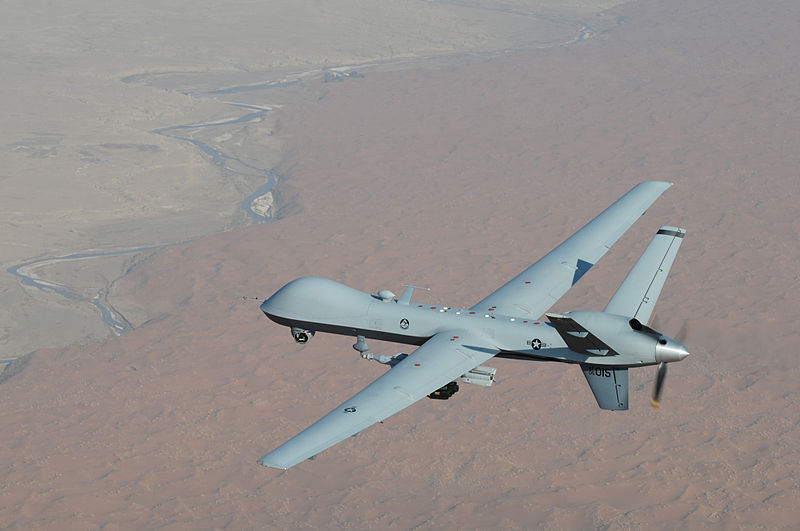
Event Review – Understanding the Strategic and Tactical Considerations of Drone Strikes
A panel of experts joined ASP for a discussion on the strategic and legal consequences of drone strikes as part of the U.S. military program. ASP CEO BGen. Stephen Cheney (USMC, ret.), ASP Fellow Joshua Foust, Benjamin Wittes of the Brookings Institution, and Daphne Eviatar of Human Rights First explored the many dimensions of this particular military tactic, and how it impacts long term national security in the United States. As many of the panelists emphasized, the topic of drones causes a great deal of controversy among domestic and foreign audiences, and yet much is still unknown regarding the specific procedures involved in U.S. drone warfare.
Mr. Foust touched on the need to critically examine all aspects of this military tactic, and pointed to a new report released by ASP regarding these crucial concerns. The report concludes that there are two sides to drone strikes, one involving their tactical success and effectiveness, and one of strategic ambiguity that arises from a lack of information dissemination about the drone process itself.
“Tactically, [drones] make a lot of sense,” Foust explained. “But from a broader perspective, I think there are a lot of questions that remain unanswered about how these get used. The first is, from a strategic perspective, from a long term perspective, is the threat posed by these targeted groups growing or shrinking?”
Another main question surrounding drones, explained Mr. Wittes, should address the strategic implications of conducting lethal, covert operations in a given space, and why exactly the U.S. (and other nations) has moved to this style of warfare. Wittes, along with his fellow speakers, argued that the question of alternatives to drone warfare is a central part of the overarching discussion, as many justify the potential negative consequences of this technology with the argument that alternative military tactics to eliminate the threat of terrorism would be more costly and complicated.
“It is impossible to answer the question of the strategic, legal and moral elements of drone use without reference to the question of what your alternatives are. And broadly speaking, the reason we have fallen back on this strategy is that there are two alternatives that people have posited, and they both stink.” [Referring to an application of an international criminal law model, and a larger scale projections of force approach]
Ms. Eviatar provided a valuable examination of the legal context of drone strikes, and described the international laws which are meant to monitor/govern drone activity. In a broad sense, the law permits drone strikes in cases involving “armed conflict and targetable figures that present an imminent threat.” Oftentimes, Eviatar argued, statements made by U.S. officials, such as those of counterterrorism advisor John Brennan, suggest that the U.S. goes beyond these international guidelines. A key point echoed by all the panelists highlighted the failure of this administration to adequately convey and disseminate critical information regarding drone targeting, casualties, and operations to the wider international audience.
To the question regarding the true perception of drones by foreigners on the ground, the panelists again emphasized the alternatives of this tactic. Ms. Eviatar agreed with this idea of understanding the alternative, but also argued that:
“Sometimes less can be more and there are some situations where the U.S. military just shouldn’t be using military force” saying “one alternative has to be the U.S. government support local forces, supports local law enforcement, supports local development…there’s a lot of things we can do as counterterrorism strategies short of military force.”
BGen. Cheney brought up the important point that many of the governments in nations that experience these strikes actually benefit from them and oftentimes have given the U.S. permission to conduct these strikes in their territories.
Another audience member brought up to the question of how the panelists would advise President Obama to address these issues concerning drone strikes. All the speakers called for a need for improved transparency within drone operations, specifically regarding targeting procedures. By releasing its “rule book” on drone strike procedures, the U.S. may be able to send a positive message to the international community about its military agenda.
See the video of the event below:

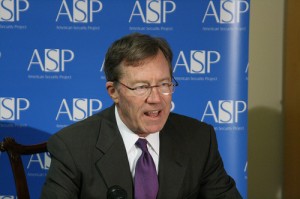
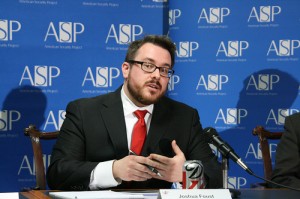
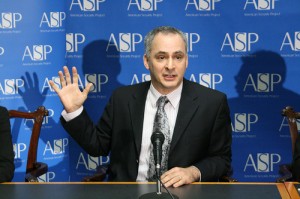
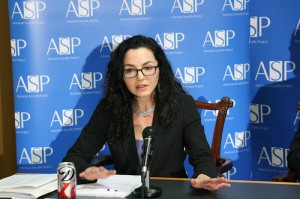





[…] the American Security Project (ASP) held a lunch event on drones. The discussion, between ASP’s CEO Stephen Cheney, ASP Fellow Joshua Foust, Daphne Eviatar of […]
[…] an article in the Orlando Sentinel on August 30, 2013. The article argued in favor of utilizing drones as a tactic in modern warfare due to its myriad of capabilities and […]